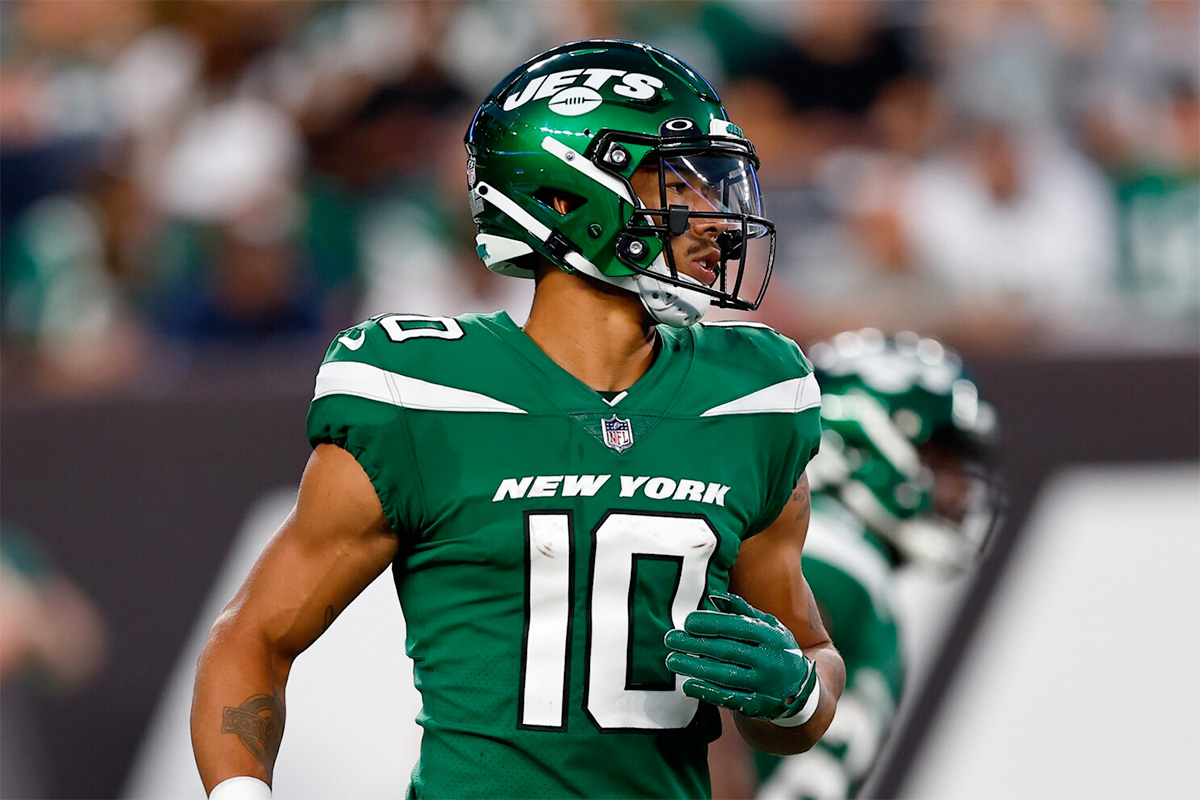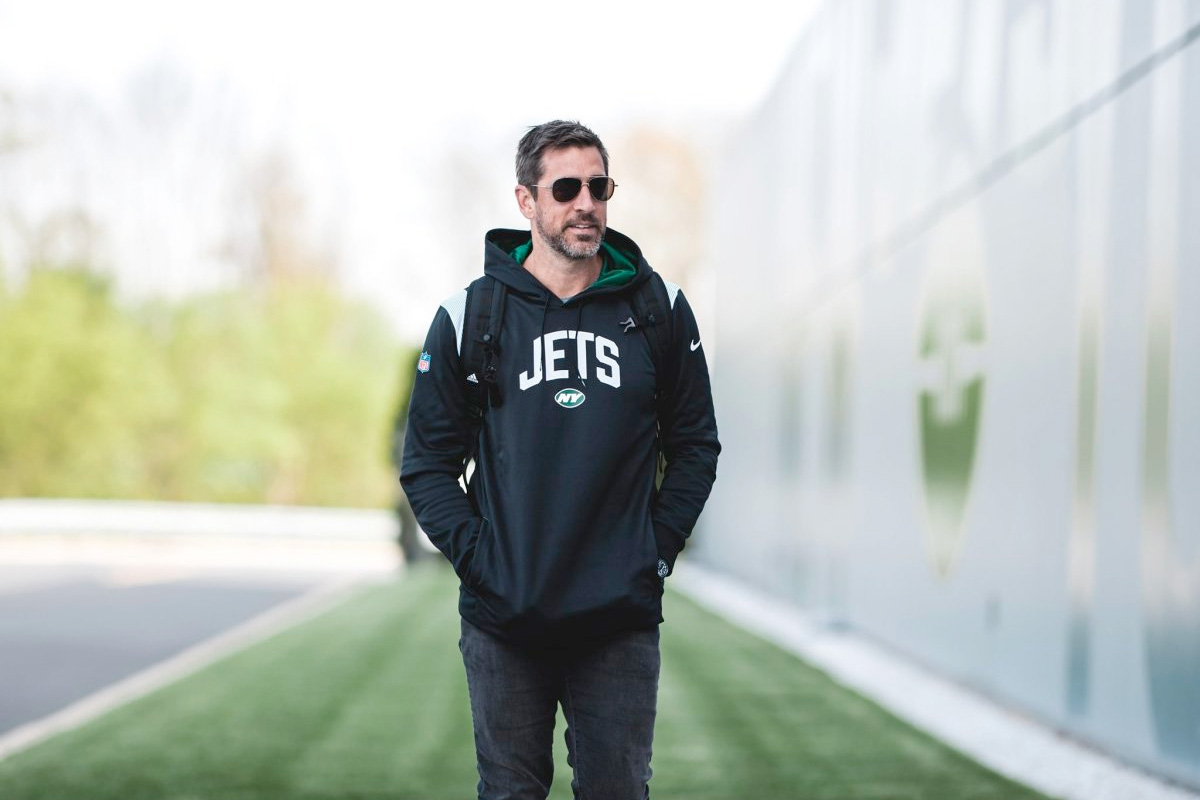The New York Jets' season was marked by unforeseen challenges, notably the injury of Aaron Rodgers. Despite high expectations, Rodgers' Achilles injury in Week 1 was a significant blow, derailing the team’s aspirations from the outset. Head coach Robert Saleh's perspective that the team should have performed better even in Rodgers’ absence underscores the need for adaptability and resilience in professional sports.
"When you have a Hall of Fame quarterback, you’re going to build it around his strengths, period," Saleh said on December 25. “That's a very common thing throughout the league. It's not just a Jets thing. That's league wide.
"Could we have done things better? I’m talking about myself and the coaching staff, with regards to, 'All right, this is our worst-case scenario, now what?' Absolutely, and it's something that we will make sure that we do a heck of a lot better within 2024."
Management's Role: Assessing Responsibilities
Saleh and general manager Joe Douglas have been confirmed to continue with the New York Jets for the 2024 season. This news was recently reported by the New York Post, quoting team owner Woody Johnson.
Johnson's decision to retain both Saleh and Douglas for another season can be largely attributed to the unexpected season-ending Achilles injury suffered by Aaron Rodgers in Week 1. In essence, Johnson is granting Saleh and Douglas a second chance, or a "mulligan," considering the significant impact of Rodgers' injury on the team’s performance and plans for the season.
Reliability in Kicking: A Silver Lining
In a season rife with inconsistencies, Greg Zuerlein stood out as a beacon of reliability for the Jets. His impressive record of 32 of 34 successful field goals highlights his value to the team, suggesting he should be a key figure to retain in the roster.
Leadership and Influence: Rodgers' Role
Aaron Rodgers' public support for Douglas and Saleh played a pivotal role in shaping the team’s leadership dynamics. His desire to play for at least two more seasons adds complexity to the team’s decision-making, especially regarding personnel changes and strategic planning.
Backup Quarterback: A Critical Need
The Jets' failure to secure a competent backup for Rodgers was glaringly exposed this season. The team's reliance on Zach Wilson, Tim Boyle, and Trevor Siemian, without seeking a notable replacement, was a significant oversight. This misstep underscores the importance of having a strong backup, especially when leading a team with a veteran quarterback prone to injuries.
Offensive Line: The Achilles' Heel
The offensive line emerged as a major area of concern for the Jets. The inability of Mekhi Becton and other linemen to effectively protect Rodgers calls for a substantial investment in this area, possibly through the draft or free agency.
Wide Receiver Woes: Underperforming Assets

Allen Lazard's underwhelming performance, despite his hefty contract, is a sore point for the Jets. With a cap hit of $12.1 million next year, his role needs reevaluation, especially if the team intends to pursue high-caliber players like Davante Adams.
The Quest for Quality Swing Tackles
The Jets' roster strategy, particularly in the context of swing tackles, requires a significant overhaul. The past season's experience demands a more proactive approach in acquiring competent players to bolster the offensive line.
Interior Line: Building Depth and Versatility
The composition of the Jets' interior line, featuring Laken Tomlinson, Joe Tippmann, and Vera-Tucker, necessitates a focus on depth and versatility. Contingency plans need to be in place, considering the potential movements within the roster and the health concerns of key players.
Safety Positions: Free Agency Decisions
The safety positions, particularly with players like Jordan Whitehead and Ashtyn Davis, demand strategic decisions. The balance between retaining experience and nurturing young talent will be crucial in shaping the team's defensive capabilities.
Anticipation for 2024: A Renewed Hope: Looking Forward With Optimism
As we continue to see Aaron Rodgers improve, Jets fans should be looking ahead to next year with the same anticipation they had before entering the 2023 season. Sportsbook odds are sure to improve for the Jets heading into training camp next year.
Final Thoughts

The New York Jets are a team at a crossroads. The challenges they faced in 2023, underscored by Rodgers' injury, have set the stage for significant changes in 2024. With strategic investments in key positions and a renewed focus on adaptability, the Jets have the potential to transform their fortunes and re-emerge as formidable contenders in the NFL.
The New York Jets' journey into the 2024 season is not just about recovering from a setback; it's about seizing the opportunity to reforge their identity and strategy. The lessons learned from the past season's disappointments must be the catalyst for a comprehensive reevaluation of the team’s approach, both on and off the field.
Central to this transformation is the need for a robust plan that addresses the team's vulnerabilities. The quarterback situation, a glaring issue in 2023, needs a two-pronged solution: securing a reliable backup for Aaron Rodgers and grooming a young quarterback for the future. This dual approach will safeguard the team against unforeseen injuries while building a sustainable foundation for the coming years.
The offensive line, another critical area, demands immediate attention. Protecting an elite quarterback like Rodgers, especially considering his age and recent injury history, is paramount. The draft and free agency offer avenues to strengthen this line, with a focus on acquiring agile and powerful tackles who can provide the necessary shield for the team’s offensive operations.
Additionally, the wide receiver corps needs revitalization. The underperformance of key players like Allen Lazard cannot be overlooked. Bringing in dynamic and high-impact players will not only enhance the team's offensive capabilities but also provide Rodgers with the tools he needs to execute the game plan effectively.
The defensive lineup, particularly the safety positions, should also be a priority. The potential departure of seasoned players opens up opportunities for fresh talent to step up. Investing in young, energetic, and strategically astute players will bolster the team's defense, making it more adaptable and formidable against diverse offensive threats.
The Jets' management, under the guidance of Coach Saleh and GM Douglas, must adopt a proactive and innovative approach in their decision-making. This includes embracing new strategies, scouting for hidden talents, and being open to unconventional solutions that could provide the team with a competitive edge.
In summary, the New York Jets' path to resurgence in 2024 lies in their ability to adapt, innovate, and strategically reinforce their squad. With a clear vision, astute planning, and a commitment to excellence, the Jets can indeed reinvent themselves and rekindle the hopes of their fans. The upcoming season is not just another chapter in their history; it’s an opportunity to redefine what the New York Jets stand for in the competitive landscape of the NFL.